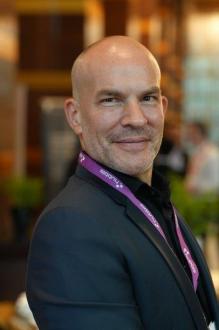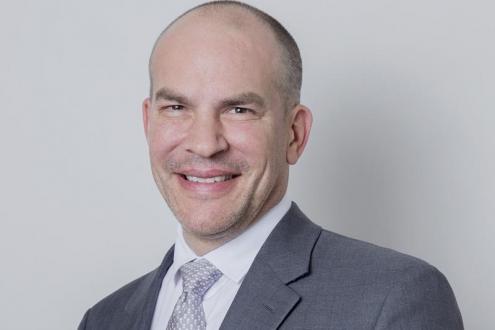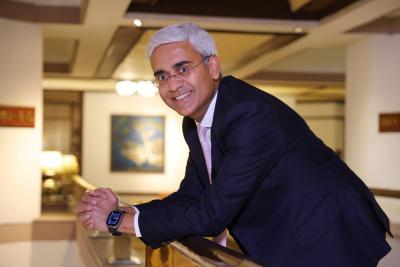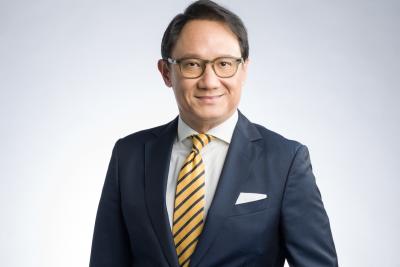Family Offices, Wealth Management, and Navigating Intergenerational Transitions: A Discussion with Evrard Bordier

Evrard Bordier of Bordier & Cie
Aug 4, 2023
Evrard Bordier, the Singapore-based Managing Partner at Bordier & Cie, recently shared his insights into the role and opportunities presented by family offices for private wealth managers. Bordier’s decades of experience in the industry offer an invaluable perspective for wealth managers hoping to better serve their high net worth clients. The conversation proved to be a deep-dive into the world of digital banking, AI, and the continuing importance of human touch in the private wealth management sector was explored. Evrardis also the fifth-generation member of the bank’s founding family. Evrard emphasises the need for private banks to strike a balance between staying abreast of technological advancements while preserving the human interaction that forms the cornerstone of their business.
Family offices, often established by ultra-high net worth individuals or families, represent a significant opportunity for private banks like Bordier & Cie. Evrard acknowledges that while there can be complexity, particularly when these offices are in the early stages of structuring, the opportunity outweighs these challenges.
Zoning in on Key Areas
There are four primary areas Evrard identifies when it comes to family offices: legal infrastructure, physical infrastructure, financial elements, and the tax and regulatory aspects. Not all of these areas are within the purview of a private bank. Bordier & Cie focuses on the financial infrastructure, which includes consolidation of assets, investments, and asset allocation.
The second area where Evrard sees the potential to work with family offices is in the governance framework. He explains how private banks can help families establish a functioning mechanism for the operation of their family office. This includes setting up a proper structure, addressing possible miscommunication or misunderstanding, and providing guidance on who participates and benefits from it.
Evrard believes that the bank's role extends beyond just managing assets. They assist in various other facets, like philanthropy and residency, by leveraging their network. Heemphasizes, however, that where they truly add value is in the financial realm and the governance framework.
The intergenerational challenge
However, challenges arise when it comes to intergenerational wealth transitions.
Wealthy families often experience internal conflicts that, if not properly managed, can destroy wealth. The next generations also have their own perspectives on wealth management and the use of the money, which can differ from the patriarch or matriarch's views.
Evrard emphasizes that effective conflict management and communication between family members are key to maintaining healthy relationships within these complex scenarios. For private banks, the challenge is to retain the family's assets across generations, even as wealth management preferences evolve.
He suggests the idea of establishing different departments or investment strategies to cater to various family members' preferences. This approach allows each family member to build their portfolio using the same tools but with varying allocations according to their views on asset allocation and management.
The bigger picture
Changing the topic, Evrard offered comment on Bordier & Cie’s place within the world of Swiss Private Banking. He pointed to the current situation surrounding Credit Suisse and UBS, which has led clients to question the security of larger institutions and to seek alternatives. Evrard reports that he sees this as an opportunity to reinforce their value proposition and provide a more personalized, tailored service to their clients. Unlike larger institutions, where clients often feel overlooked unless they hold substantial portfolios, Bordier & Cie values every client and provides an individualized service based on their unique requirements.
"We're aligning ourselves with the clients much more and we treat the clients like family," Evrard explains, pointing out the value of personalized interactions over automated services.
Innovating digitally to excel
Speaking about the firm’s shift towards digital, Evrard explained how technology could be a powerful enabler, noting that through digitalisation, the firm can make their services more accessible and user-friendly. They are developing more interactive weekly reports and expanding into video, catering to clients who prefer different formats for their financial updates.
When asked about potential applications of AI and technology in the wealth management sector, he noted the rising automation in the investment side, but emphasized that even though technology continues to automate certain processes, human touchpoints still play an integral role. Especially in cases of external asset managers (EAMs), having dedicated and competent RMs and assistants who can resolve issues promptly and efficiently remains invaluable.
In turn, despite the increasing compliance burden that many banks and wealth management firms face in the region, Evrard reports that Bordier & Cie is committed to improving its processes. “We have adopted digital signatures, and are exploring ways to verify client information more efficiently. The goal is to streamline the onboarding process and provide faster responses to clients,” he says. “We are committed to providing timely responses to our clients, aiming to response within a week, while maintaining the rigorous standards our clients expect and trust.”
The importance of human involvement
However, when it comes to balancing the implementation of technology, Evrard noted the view that technology should augment rather than replace human involvement. In their view, automated solutions can be beneficial in areas such as compliance and efficiency, but personal advice and understanding, supported by AI and facilitated by human interaction, remain paramount in their service offering. “The main strength we have is we are a boutique service provider, we are talking hand holding, talking about something else than just investments, understanding, talking about other issues, just building a rapport between two humans.”
It is crucial not to lose sight of the personal, tailored approach that underpins their business, he reports. Although he acknowledges the powerful capabilities of digital trading platforms, it is important to remain committed to the value of individual human interaction in managing wealth.
Building upon success
Ending the discussion, Evrard emphasized the firm's successful expansion and the fruitful collaboration with Moonfare in the realm of private equity, enabling their customers to access high-quality private equity funds. Upon the agreement's inception in mid-2022, Evrard praised the partnership for perfectly aligning with the bank's ongoing efforts to diversify its investment services. This partnership has proven to be a beneficial venture for the private bank.
Witnessing the rising interest in private market opportunities among investors in Asia, Bordier & Cie viewed this alliance as part of its strategy to broaden its service offerings in the firm’s never-ending mission to match their clients' complex needs and desires.

CEO and Managing Partner at Bordier & Cie

More from Evrard Bordier, Bordier & Cie
Latest Articles






